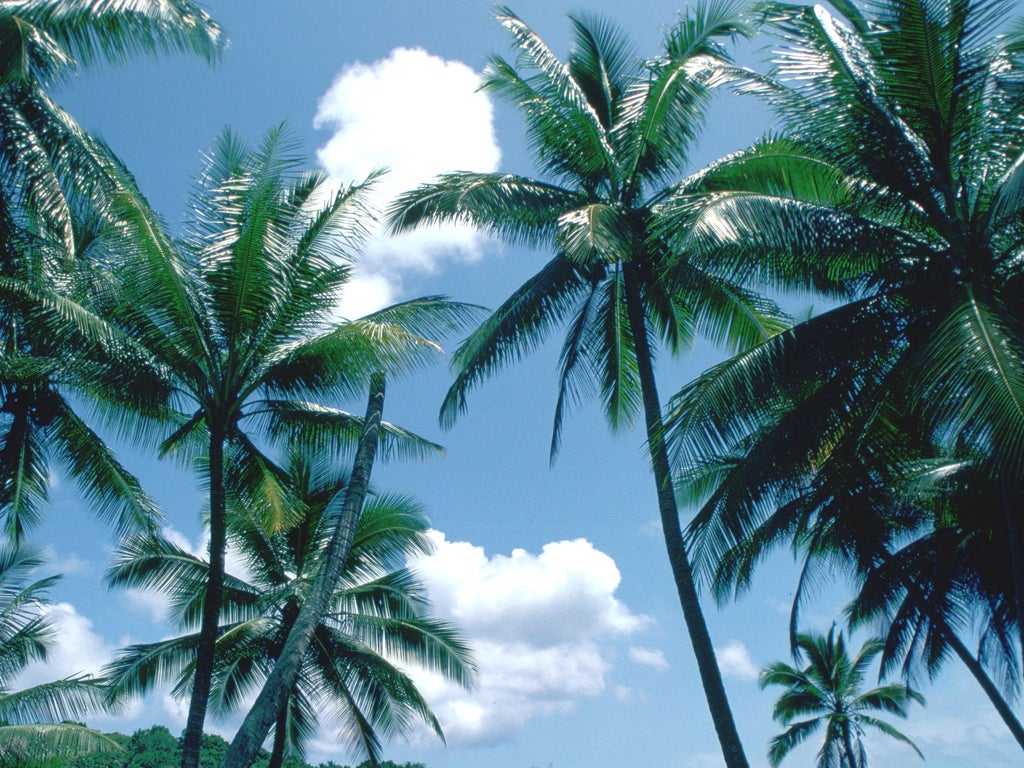Your support helps us to tell the story
From reproductive rights to climate change to Big Tech, The Independent is on the ground when the story is developing. Whether it's investigating the financials of Elon Musk's pro-Trump PAC or producing our latest documentary, 'The A Word', which shines a light on the American women fighting for reproductive rights, we know how important it is to parse out the facts from the messaging.
At such a critical moment in US history, we need reporters on the ground. Your donation allows us to keep sending journalists to speak to both sides of the story.
The Independent is trusted by Americans across the entire political spectrum. And unlike many other quality news outlets, we choose not to lock Americans out of our reporting and analysis with paywalls. We believe quality journalism should be available to everyone, paid for by those who can afford it.
Your support makes all the difference.At first glance, Nauru and Abkhazia make an unlikely pairing on the world stage, with little in common other than their obscurity, and desperate need for new friends. Nauru, the world's smallest republic, is a destitute South Pacific island microstate of just 8.5 square miles, with about 10,000 inhabitants and a critical shortage of funds following the collapse of its only industry of note, mining phosphate deposits created by bird droppings.
Abkhazia, 13,000km away on the eastern coast of the Black Sea, is a former Soviet republic of about 240,000 people, with few allies in the international arena besides its chief backer, Russia. Its independence is recognised by only six countries, including Nauru, with the rest of the world viewing it as a renegade province of Georgia, against whom it fought a bloody secessionist war in the 1990s.
Yet despite their differences, Nauru and Abkhazia have become firm friends, as a result of a "paper war" between Georgia and Russia that is reshaping the geopolitical landscape of the South Pacific and prompting accusations of chequebook diplomacy – using aid, investment and gifts for diplomatic gains, including their votes at the UN.
Since the end of its 2008 war with Georgia, Russia has been lobbying for international recognition of Abkhazia and South Ossetia, the two breakaway Georgian territories at the heart of that conflict. The first shot fired in the diplomatic war was in late 2009, when Nauru became only the fourth country (after Russia, Nicaragua and Venezuela) to establish diplomatic relations with Abkhazia and South Ossetia. Nauru received $10m (£6.3m) in Russian money, used to pay for critical work on its port and aircraft.
Juris Gulbis, Abkhazia's ambassador to Asia-Pacific, told i that Abkhazia had approached about 14 countries, and expected at least four – on top of the three Pacific Island nations, including Nauru – to give their backing by the year's end. The ultimate goal is recognition in the United Nations, with each vote from a member state amounting to another small step on the path to statehood.
But Moscow's new assertive policy in the South Pacific has prompted Georgia to launch a rival campaign to woo the region's leaders.
Last October, Georgia's foreign minister, Grigol Vashadze, visited Fiji to court the regime of Commodore Josaia Voreqe "Frank" Bainimarama. Then, late last month, just days before Russia's Mr Lavrov was scheduled to make his first visit to Fiji, a Georgian delegation returned to present the island republic with 200 notebook computers. Georgian deputy foreign minister, Davit Jalagania, said Tbilisi hoped Fiji would withstand "temptation or pressure" and refuse to recognise Abkhazia and South Ossetia.
"This is clearly chequebook diplomacy," said Mr Gulbis. "Georgia has not had any relations for years in the South Pacific, but suddenly, just before the Russian foreign minister arrives, a delegation happens to turn up with these useless Georgian laptops."
Russia, too, has started aid payments to Fiji, including $20,000 for recent floods. But Mr Gulbis denied it was to garner further backing for Abkhazia. "We have not paid a Pacific country to recognise us," he said, adding that Russia's $10m payment to Nauru was "unrelated" to recognition.
Last year, the nations of Vanuatu (population 240,000) and Tuvalu (population 11,000) recognised Abkhazia. The latter, suffering a fresh water crisis, elicited sweeteners from both sides. In September, it received medicine worth $12,000 from Georgia, before switching its allegiance and receiving thousands of bottles of Fiji Water from Abkhazia.

Join our commenting forum
Join thought-provoking conversations, follow other Independent readers and see their replies
Comments